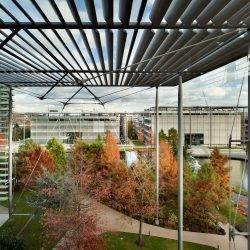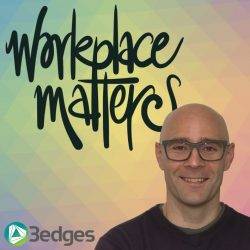June 22, 2017
KI helps to create agile, flexible workspace at Paramount Pictures’ UK HQ 0
 KI has helped film production giant Paramount Pictures create an agile, flexible new workspace at their stunning new UK headquarters. Drenched in natural light, the offices offer staff and visitors views over the adjacent green space and lake, as well as sweeping views across London. Spread across two floors at Chiswick Park, the offices also accommodate the team of Paramount subsidiary United International Pictures. Working alongside office furniture supplier Rapid Office, Paramount Pictures selected KI’s UK designed and manufactured workstations, tables, storage, workwalls and breakout screening, enhanced by a palette of 12 colours from Camira’s Lucia fabric range. The vibrant combination of blues, purples, greens and beige have been used to differentiate departments.
KI has helped film production giant Paramount Pictures create an agile, flexible new workspace at their stunning new UK headquarters. Drenched in natural light, the offices offer staff and visitors views over the adjacent green space and lake, as well as sweeping views across London. Spread across two floors at Chiswick Park, the offices also accommodate the team of Paramount subsidiary United International Pictures. Working alongside office furniture supplier Rapid Office, Paramount Pictures selected KI’s UK designed and manufactured workstations, tables, storage, workwalls and breakout screening, enhanced by a palette of 12 colours from Camira’s Lucia fabric range. The vibrant combination of blues, purples, greens and beige have been used to differentiate departments.




































June 12, 2017
What will the UK General Election mean for the workplace? Some experts respond 0
by Mark Eltringham • Architecture, Comment, Flexible working, Property, Workplace, Workplace design
(more…)